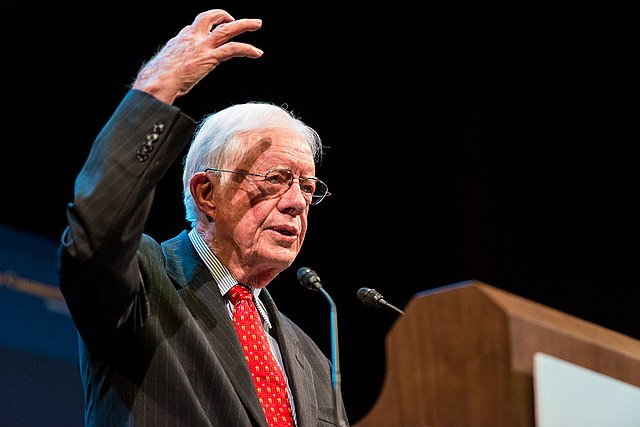The United States observed a rare national day of mourning on Thursday to honor former President Jimmy Carter, who passed away on December 29 at the age of 100. The New York Stock Exchange (NYSE) and Nasdaq suspended trading, joining government institutions and businesses in marking the occasion.
President Joe Biden declared January 9 a day of mourning in an executive order. This coincided with a state funeral at the Washington National Cathedral, where leaders and dignitaries gathered to pay tribute to Carter's life and legacy. Flags across the nation were flown at half-staff for the 30-day period following his death.
The NYSE and Nasdaq closures continue a longstanding tradition of halting trading to honor deceased presidents, a practice dating back to 1865 when markets closed following President Abraham Lincoln's assassination. Tal Cohen, president of Nasdaq, highlighted the decision as a meaningful gesture. "We mourn the loss of President Carter and will be closing our U.S. markets during the National Day of Mourning to celebrate his life and honor his legacy," Cohen said.
Similarly, NYSE President Lynn Martin praised Carter's contributions. "His lifetime of service to our nation will not be forgotten," Martin said in a press release. Both exchanges coordinated the shutdown with regulators and the broader financial industry to ensure a unified response.
Bond markets operated with reduced hours, closing at 2 p.m., following a recommendation from the Securities Industry and Financial Markets Association (SIFMA).
Beyond Wall Street, other sectors also observed the day of mourning. The U.S. Postal Service suspended regular mail delivery, and the Supreme Court building was closed on Chief Justice John Roberts's orders. Federal government offices were shuttered, although essential personnel in national defense and security continued to work.
The closure marks the first national day of mourning since December 2018, when markets and institutions paused to honor President George H.W. Bush. Carter's death prompted a similar nationwide reflection on his legacy as the 39th president and his subsequent decades of humanitarian work.
Carter's post-presidential life earned him global recognition, including the Nobel Peace Prize in 2002 for his efforts to promote peace, democracy, and human rights. His leadership of Habitat for Humanity and advocacy for global health left a profound impact on millions worldwide.
As part of the day's events, the NYSE flew the American flag at half-staff, and Nasdaq observed a moment of silence before markets would have opened. While such mid-week market closures are rare, the unified response underscored Carter's significance to the nation.






